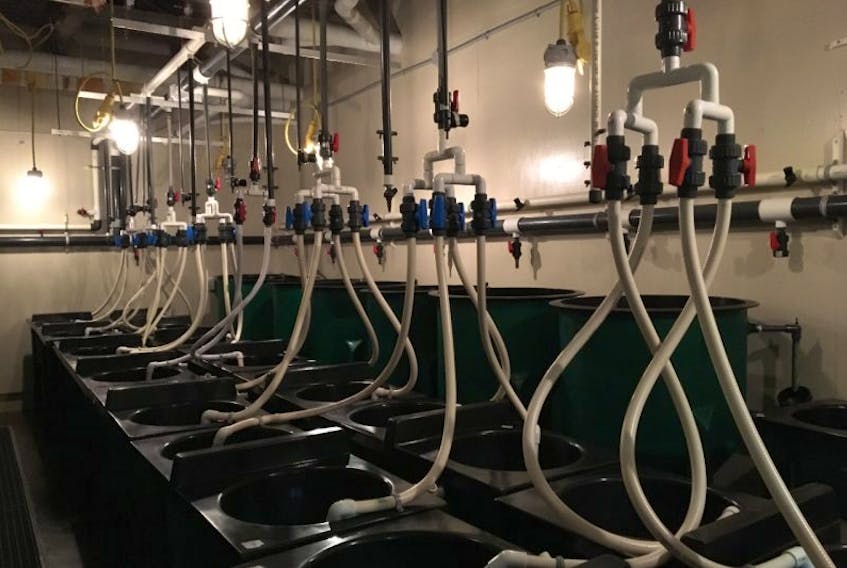
WINTERTON, NL — Almost a decade removed from being active in the sea urchin market, a fish processing company based in Winterton is investigating a new method that could result in year-round business.
Green Seafoods recently published notice of its application to the Department of Fisheries and Aquaculture for a licence to operate a commercial sea urchin aquaculture facility.
The company’s vice-president of operations Mark Sheppard told The Compass it’s been about 10 years since the company last processed urchins.
“Basically, it was a wild harvest,” he said. “They would bring them here, remove the bowl, package it up and ship it to Japan.”
There came a point where this simply was not a viable product for Green Seafoods to continue processing. However, there’s been lots of research taking place in recent years about farming sea urchins in tanks. In the set up Green Seafoods is exploring, the company would work strictly with barren urchins. In previous years, its processing of urchin gonad (also known as roe) focused exclusively on egg-producing urchins.
“Basically, the divers were targeting active sea urchins that were feeding on kelp,” Sheppard explained. “The change to what we’re doing is that we’ll now be targeting urchins that are barren and that have no roe in them. So, we’ll bring them in and feed them for a period of months and then bulk up the roe and sell them.”
This would also involve the use of a unique feed produced by a company called Urchinomics, which has partnered with Memorial University on research using the feed.

“Green Seafoods did some work on sea urchin aquaculture before in terms of trying to raise up the roe content, but the challenge was always partially acquiring the feed,” Sheppard said. “A steady supply of kelp was hard to come up with, and then the urchins didn’t act in the tanks the same way they would in nature. We fed them kelp along with herring or capelin or something like that. We could never get a good feed.”
He noted too the feed used ultimately came through clearly in the taste of the end product.
“So, we fed them herring, and it just tasted disgusting,” Sheppard said. “But these people that we’re partnering with (from Urchinomics) have the feed technology worked out.”
If it were to become commercially viable as an aquaculture endeavour, Green Seafoods could handle the processing on a year-round basis, creating steady employment for plant workers. Sheppard is hoping to have a commercial trial ready for the fall.
Sea urchins attract a good price on the market, and Sheppard believes there’s potential to sell the product fresh in Europe and the east coast of North America. Sea urchin is popular in sushi, among other seafood dishes.
“There’s lots of sea urchins around Newfoundland, and specifically, there’s lot of barren sea urchins around Newfoundland,” said Sheppard, emphasizing the fact these types of urchins have not been targeted before.
“It could be a good, sustainable business for a long time.”
SEE RELATED:









